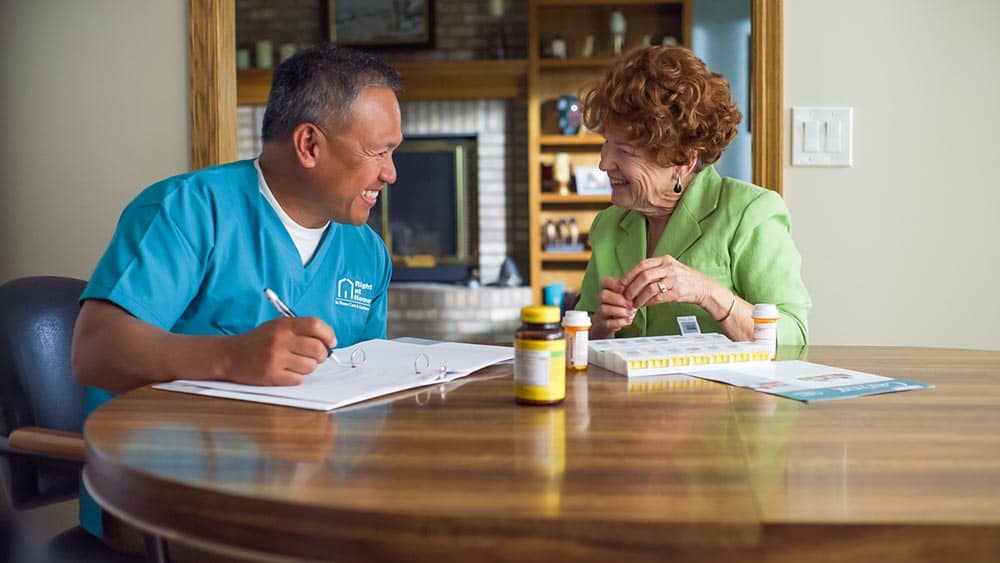

The Health Benefits of Tai Chi in Older Adults and How To Get Started
As we grow older, prioritizing our physical and mental well-being becomes increasingly vital. Seniors, along with their caregiving family members, often seek effective methods to maintain their health and cognitive wellness. One such approach that has captured the interest of seniors is tai chi, an ancient Chinese martial art characterized by slow and purposeful movements. This time-honored practice blends exercise with motion, offering a range of advantages for both the body and mind.
Understanding Tai Chi
Tai chi is a low-impact activity initially developed for combat purposes and self-defense. Today, it has emerged as a favored form of exercise among older people due to its emphasis on movement, meditation, and regulated breathing techniques. Tai chi has become a popular exercise regimen for seniors that emphasizes enhancing health and facilitating recovery.
Tai Chi Health Benefits
Tai chi may offer certain physical health benefits for aging adults. For example:
- Tai chi may increase mobility. The practice may help with balance coordination, especially for older adults who have stability issues. Tai chi may also help lessen pain and stiffness.
- Tai chi may boost immune health. Its benefits may include reducing stress, which can foster immune health.
- Tai chi may improve balance and reduce the risk of falls. Practicing tai chi regularly may help strengthen muscles, especially in the lower body, improving balance and reducing the risk of falls.
- Tai chi is good for joints. Because tai chi is low impact, it is an exercise that is gentle on the joints, making it a great choice for those with arthritis or who need to limit high-impact activities.
- Tai chi may enhance cardiovascular health. It involves slow, fluid movements that may help strengthen the heart without overstraining it.
Mental Well-Being Benefits of Tai Chi
While regular practitioners of tai chi may certainly experience better physical balance, they may also experience better emotional balance. Tai chi may reduce the likelihood of seniors developing depression, anxiety, and other mental disorders. The activity helps with relaxation and may alleviate stress, anxiety, and depression. Tai chi, inherently focused on breathing and movement, provides a meditative experience. Because of this atmosphere of meditation, it becomes easy to enter a state of calm or a “no-mind” zone where thoughts are pleasant. In this way, tai chi is a means of not just maintaining mental health but also improving it. This is especially true for seniors and their caregivers. Evidence supports the idea that tai chi can help clear the mind.
Tai Chi Styles Explained
There are several different styles of tai chi to suit various needs and goals. Seniors can learn more about tai chi and the options to match different fitness levels and preferences at LIVESTRONG.com, a website dedicated to helping people live stronger, healthier, and happier lives, and Healthline, a health information website for all ages.
How To Get Started With Tai Chi
Tai chi is easy for older adults to start, and there are many beneficial resources available to help them. Local YMCAs, senior centers, and community centers often have tai chi classes, as do some local martial arts gyms.
There are also many videos online where older adults can learn tai chi at their own pace. Those interested can search YouTube for videos teaching tai chi to beginners, and free online tai chi classes are available at the AARP Virtual Community Center. Various tai chi apps can be downloaded to a mobile or handheld device. These apps are available on Google Play Store and the Apple App Store.
Adding Tai Chi to a Healthy Living Routine
Tai chi can be a gentle and effective way for older people to stay healthy. Its slow, careful movements and calming nature make it an excellent exercise for improving balance, strength, and flexibility while helping keep the mind sharp and relaxed. Seniors and their caregivers can benefit by adding tai chi to their daily routine. Whether done at home with online videos or in a group setting, beginners should seek simple and manageable tai chi exercises to maintain this new healthy habit long term.
How Right at Home Can Help
Right at Home’s trained and insured/bonded caregivers are passionate about helping aging adults live independently, no matter where they call home. To find out more, use our office locator to speak with a local office that can help you navigate the aging journey. You can also download a copy of the 12 Questions To Ask When Choosing an In-Home Care Provider checklist to help you with the journey.
Interested in receiving practical tips, information, and advice related to the aging journey? Subscribe to our free Caring Right at Home monthly e-newsletter today.







